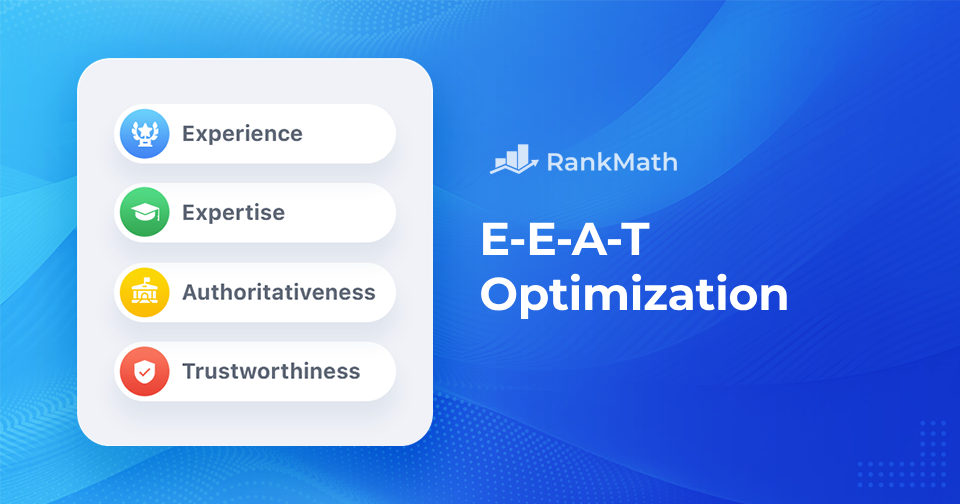If you want your website to rank well on Google, simply stuffing it with keywords won’t cut it anymore. Google now puts a strong emphasis on E-E-A-T, which stands for Experience, Expertise, Authoritativeness, and Trustworthiness.
I realized that E-E-A-T isn’t just theory—it’s something Google actually uses to assess whether your content is worth ranking. And it goes far beyond keyword use or backlinks. It’s about credibility. About showing that you actually know what you’re talking about and that readers (and Google) can trust you.
So buckle up because, in this post, we’ll walk through what E-E-A-T really means, why it matters for SEO, and most importantly, how you can optimize your content and brand to align with these principles.

Table Of Contents
1 What is E-E-A-T?
As mentioned before, the abbreviation E-E-A-T, created by Google, stands for Experience, Expertise, Authority, and Trustworthiness. In its inaugural release of the Search Quality Rater Guidelines (SQRG), Google first made reference to E-A-T in 2014.
Let me break down each of the four elements in simple terms and how I think about them when creating or reviewing content.
Experience: This is all about first-hand knowledge. If I’ve actually used a product, visited a place, or completed a process, I can write about it with my experience—and show it through examples, photos, or insights that only someone who’s really been there would know. For you, that might mean sharing screenshots, telling a story, or explaining how you handled a real-world situation.
Expertise: Expertise is having in-depth knowledge in a particular subject. It doesn’t always mean a degree or certification; it can also come from years of practice or work in a field. So if you’re writing about SEO, for example, showing your strategy, results, or client work helps demonstrate that you’re not just repeating what others say, you actually know what you’re doing.
Authoritativeness: This goes a step beyond expertise. It’s not just about knowing your stuff, it’s about being recognized by others as someone worth listening to. If other reputable sites mention you, link to your content, or invite you to contribute, you’re building authority.
Trustworthiness: Out of all the E-E-A-T components, Trust is the most important. Glenn Gabe even highlighted it as the foundation of the entire concept:
I always ask myself: would someone feel safe taking action after reading this? Would they believe what I’m saying, or question my intentions? To build trust, I keep things transparent, like showing my name, credentials, and linking to reliable sources.
2 Why E-E-A-T Matters for SEO?
If you’re wondering whether E-E-A-T really impacts rankings, the short answer is: yes, absolutely—especially if you’re in a YMYL (Your Money or Your Life) niche like health, finance, law, or anything that affects someone’s safety or well-being.
While Google has said E-E-A-T isn’t a direct ranking factor, it still plays an important role in how your content is evaluated. It influences how much Google trusts your website, and that trust can make or break your visibility, especially during core updates.
Here’s why it matters:
- It helps Google assess quality. E-E-A-T gives Google a framework to figure out whether your content is genuinely helpful or just surface-level fluff.
- It builds reader confidence. When visitors see who you are, what you’ve done, and why you’re credible, they’re more likely to trust and share your content.
- It’s especially important for YMYL topics. If you’re offering medical advice, financial guidance, or legal tips, Google holds you to a higher standard—and so do your readers.
- It aligns with Google’s Helpful Content updates. These updates aim to reward content written by people, for people, not just for algorithms.
The bottom line? If you want to rank well and stay visible long-term, you can’t ignore E-E-A-T. You need to show that you know what you’re talking about, you’ve experienced it yourself, others respect your work, and your content is trustworthy.
Before we begin with the strategies for E-E-A-T optimization, it’s important to understand a concept Google takes very seriously: YMYL, which stands for Your Money or Your Life.
3 Understanding the YMYL Concept for E-E-A-T Optimization
If you’re writing content that can directly impact a person’s health, finances, safety, or overall well-being, Google holds your site to a much higher standard. That’s because bad or misleading advice in these areas can have real-world consequences.

3.1 What Counts as YMYL Content?
If your content falls into one of the following categories, it likely qualifies as YMYL:
- Health or medical advice (e.g. how to treat anxiety, symptoms of a condition, supplement recommendations)
- Financial topics (e.g. budgeting, investing, tax advice, credit score improvement)
- Legal information (e.g. contracts, immigration, divorce)
- News and current events (especially topics involving politics, science, or emergencies)
- Safety-related content (e.g. parenting tips, car seat installation, emergency preparedness)
- Online shopping and product reviews, especially for high-value items
- Advice about major life decisions, like choosing a college, career, or retirement plan
Even if you’re just offering general information, if it influences how someone makes an important decision, it falls under this category. These pages must demonstrate accuracy, credibility, and transparency.
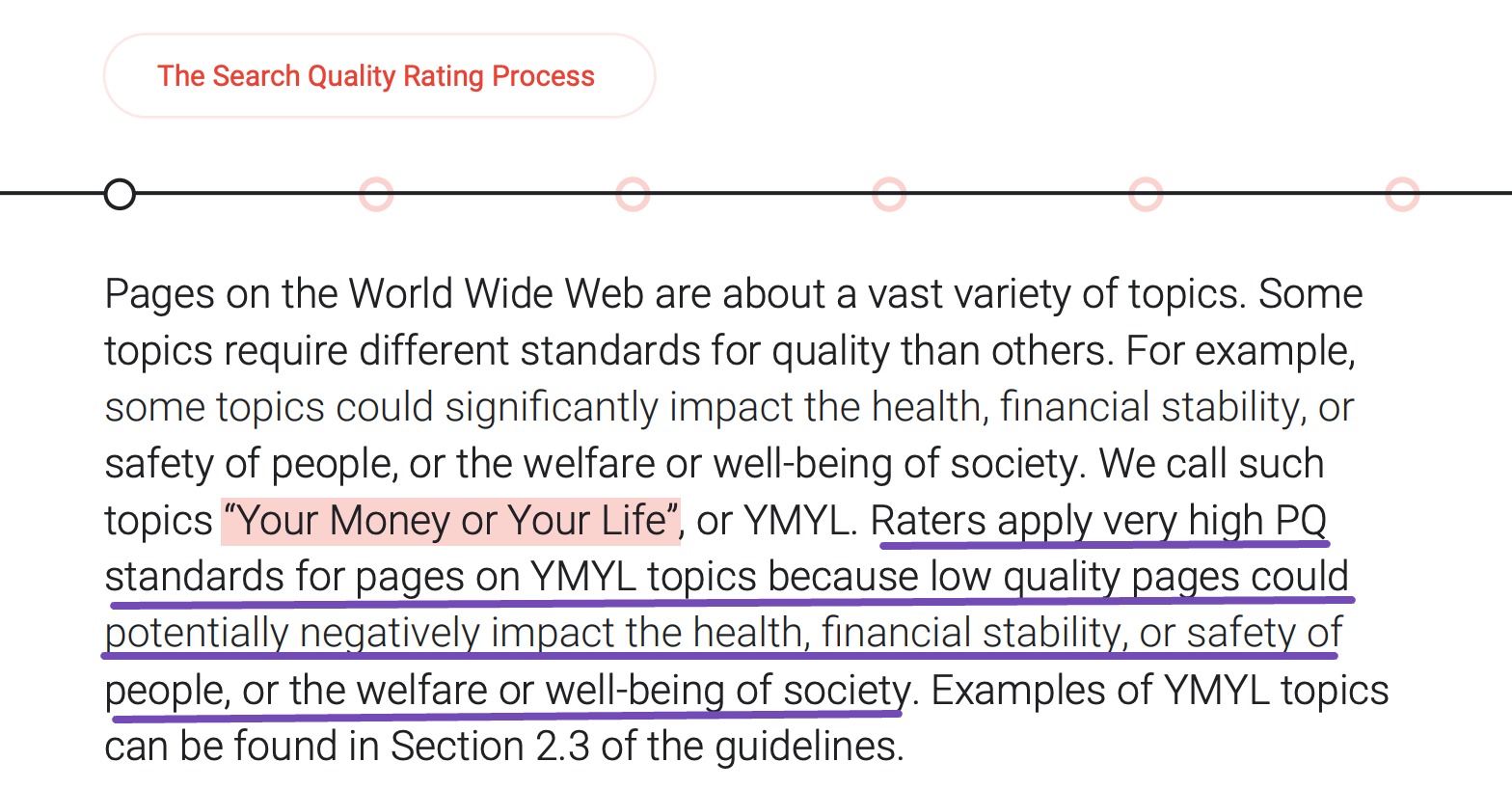
When you’re dealing with YMYL content, Google expects a much higher level of Experience, Expertise, Authoritativeness, and Trustworthiness. If you don’t meet that bar, your content is unlikely to rank, no matter how well-written or optimized it is otherwise.
For instance, let’s say I write a blog post about how to treat back pain at home. Even if I’ve personally experienced back pain and found relief through certain exercises, that’s not enough. Because this is health-related content, Google expects:
- Medical expertise or review by a professional (like a physical therapist or doctor)
- Clear author credentials (name, bio, experience)
- Trust signals like citing reputable sources (e.g. Mayo Clinic, CDC)
- A secure website, a clear disclaimer, and an updated date
Now, if you’re writing a product review on something like Best Yoga Mats for Beginners, you may not need medical credentials, but if you claim one reduces pain or helps with posture, you still need to back up your experience with evidence or references.
3.2 What You Can Do
If your content touches on YMYL topics, here’s how you can strengthen your E-E-A-T:
- Collaborate with certified professionals to review or co-author your content
- Display clear author bios with credentials and experience
- Link to authoritative sources to support your claims
- Add disclaimers and keep your content updated
- Avoid exaggerations or unproven claims
4 Strategies for E-E-A-T Optimization
To really strengthen your content—and boost your chances of ranking well—you need to address each part of E-E-A-T: Experience, Expertise, Authoritativeness, and Trustworthiness.
Let’s break down how you can optimize for each one.
4.1 Experience Optimization
Let us now look at the strategies that’ll help you optimize your content based on experience.
Sharing Personal Experience
One of the best ways to show experience is by sharing your firsthand encounters. If you’ve used a product, tested a tool, or tried a strategy, talk about it. Your readers want real, relatable insights, not just generic overviews. Here’s how:
- Get Specific: Don’t just say something worked great. Describe what actually happened. For example, if you’re reviewing an ultralight sleeping pad for hiking, explain how well it insulated against the cold, whether it made noise when you shifted at night, or how easily it fit in your backpack.
- Be Transparent: Let your audience know how you gained this experience. Did you use the product for a few weeks? Was it part of a client project? The more honest and detailed you are, the more trustworthy and valuable your content becomes.
Featuring Industry Experts
You don’t always have to rely only on your own experience. Collaborating with others in your niche, whether creators, influencers, or professionals, can enrich your content and add new perspectives.
Here’s how you can do it:
- Reach out to people in your field and ask for a quick quote or their take on a topic you’re covering.
- Weave their perspectives into your content to support or contrast your own points.
- Give them proper credit and highlight their contributions clearly; this not only builds credibility but can also boost your reach when they share the piece.
By showcasing both your own experiences and those of others, you create well-rounded, trustworthy content that stands out.
4.2 Expertise Optimization
When it comes to E-E-A-T, Google’s quality raters look for proof that the person creating the content truly knows what they’re talking about. So, how can you show that you have the right experience, skills, or credentials?
Let’s break down a few ways you can demonstrate expertise in your content.
Focus on Content Quality and Accuracy
Your content is your foundation—make it solid.
That means writing content that’s accurate, relevant, and fact-checked. Avoid spreading outdated information or SEO myths. Keep your posts up to date and make sure you’re giving your readers the best possible advice.
Check out our short video that’ll help you write quality content.

Also, if you’re using Rank Math’s Content AI, you already have a head start. It helps you create high-quality content for both readers and search engines.
Highlight Author Expertise
If you have experience or credentials in your field, don’t keep them a secret; let people know.
Add short bios for your authors with relevant details like certifications, years of experience, or notable work. For example, if you’ve been doing SEO for 8+ years and helped businesses grow their traffic 3x, say it. It builds trust instantly.
Look at how sites like Search Engine Land highlight their authors; they give readers a reason to take the content seriously.
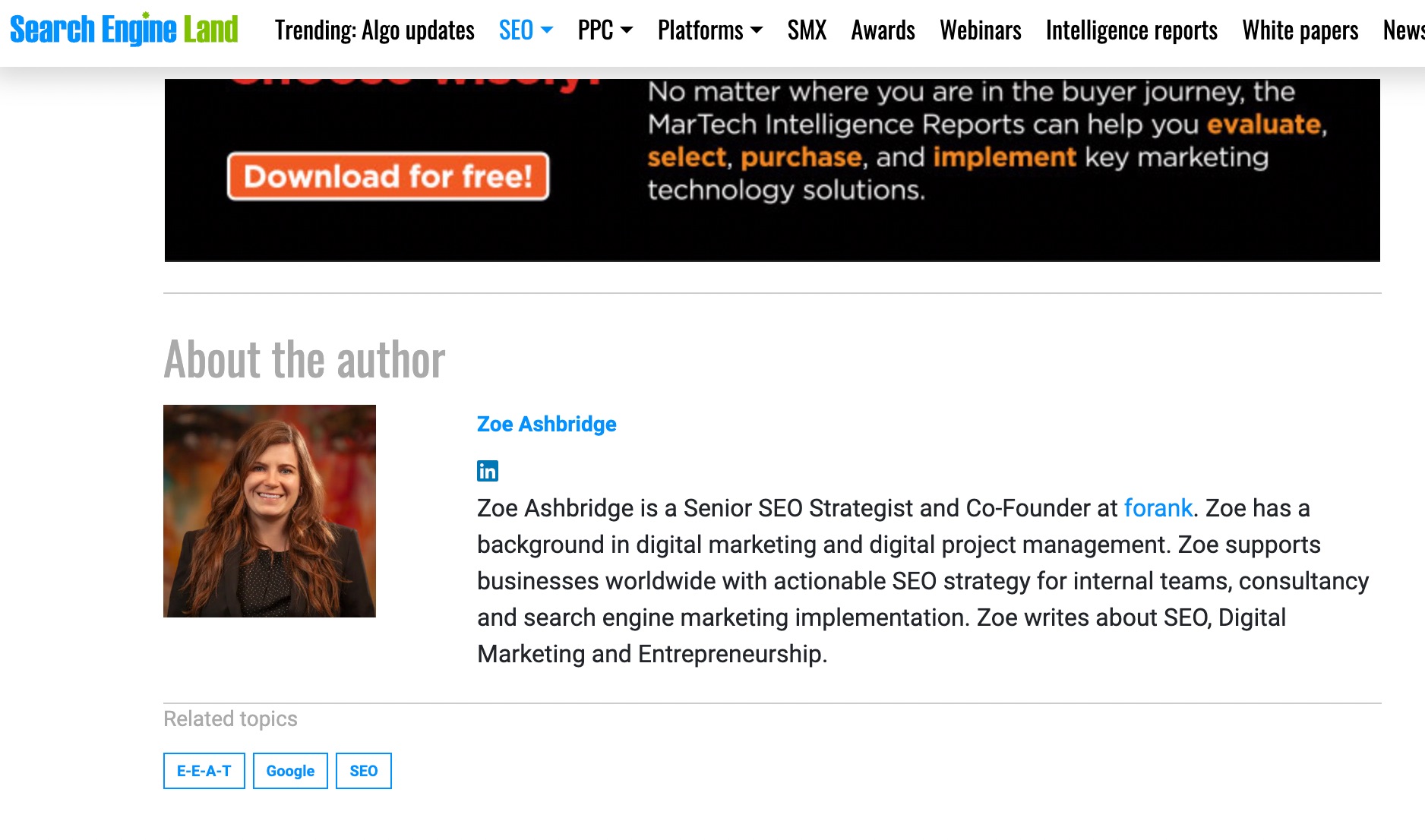
Go Deep, Not Just Wide
Don’t skim the surface; dive deep!
Instead of writing shallow posts that just skim the surface, aim for real depth.
Cover a topic thoroughly. Add examples, case studies, and even personal experiences if they help explain the point better. When readers walk away feeling they truly learned something new, that’s when your expertise shines.
At Rank Math SEO, we always aim to give you that level of depth, whether it’s in our blog posts or our knowledgebase articles.
Use Your Credentials and Qualifications
Got a degree, certification, or industry award? Don’t be shy about it.
You don’t have to brag, just mention it where it makes sense. Maybe in your bio or in a short note within the article. These details can go a long way in boosting credibility, especially for topics that fall under YMYL (Your Money or Your Life) categories.
Even a short note like Certified Google Ads Professional or 10+ years in WordPress SEO can tip the scales in your favour when it comes to trust.
4.3 Authoritativeness Optimization
Building authority is a key part of E-E-A-T, and according to Google’s guidelines, a strong reputation plays a big role in achieving it. So let’s walk through some practical ways to optimize for authoritativeness.
Backlinks and Why They Still Matter
Although backlinks carry less weight than they used to, backlinks still indicate an authoritative site.
When a well-known site links to your content, it tells Google (and your readers) that your information is trustworthy.
For example, if a respected health website links to your article on nutrition, it adds instant credibility to your content in that niche.

Also, don’t forget to add internal links to related content on your own site. This helps users find more value and keeps them engaged longer. If you’re using Rank Math, it can even suggest relevant internal links based on your existing content.
Social Proof and Endorsements
Social proof is another way to build authority.
Think of it like this: if a celebrity recommends a movie, people are more likely to watch it. In the same way, when readers see glowing reviews, testimonials, and industry endorsements on your site, they’re more likely to trust your content.
So go ahead—feature those reviews, awards, and mentions from trusted sources. They strengthen your credibility and make your site more reliable in the eyes of both users and search engines.
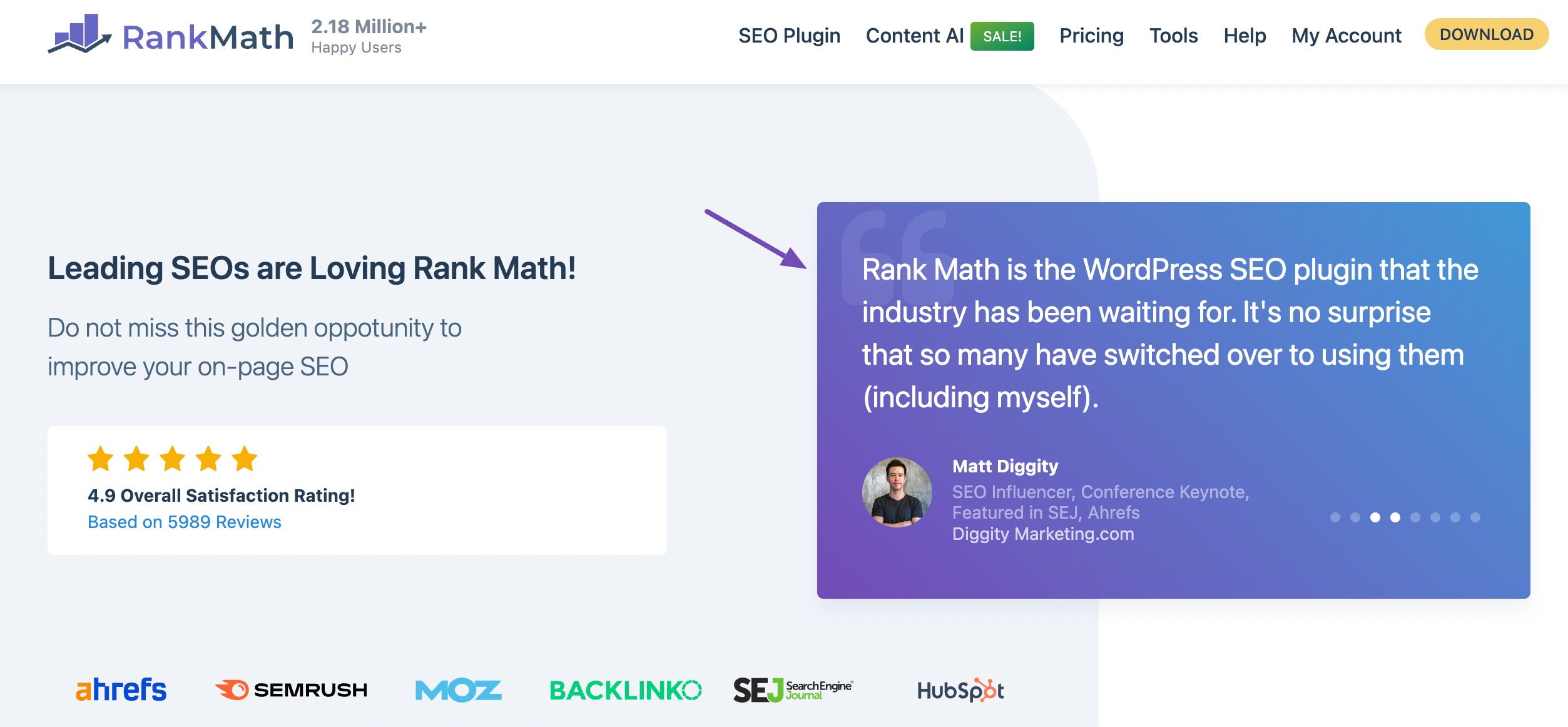
Get More Mentions
One of the more subtle ways to build authority is through mentions on other reputable sites.
Let’s say you’re an expert in Healthy Cooking. You want other websites and thought leaders in the health space to reference your name or your content when they talk about that topic. These mentions, especially from authoritative sources, tell Google that you’re a trusted voice.
But here’s the catch: you often need recognition to get recognition. It can feel like a chicken-and-egg situation.
So what can you do?
- Share unique ideas and data that others in your field find valuable.
- Create content worth linking to.
- Collaborate with industry peers.
- Guest post on authoritative websites.
- Build genuine relationships with influencers who might mention your work.
It’s a long game, but the payoff is big.
Establish Niche and Thought Leadership
If you want to become truly authoritative, aim to be the go-to voice in your niche.
That means sharing original insights, unique perspectives, and forward-thinking ideas. Think of yourself as the professor in your area, someone others turn to when they want clarity or innovation.
By becoming a thought leader, you’ll naturally attract attention, trust, and links, three key ingredients for building authority.
4.4 Trustworthiness Optimization
Trust is something you earn, and once broken, it’s hard to rebuild. That’s why Google places so much emphasis on trustworthiness, especially for pages that fall under YMYL (Your Money or Your Life) topics like health, finance, and safety.
Let’s walk through how you can build and strengthen that trust, so when someone lands on your site, it’s like giving them a firm, honest handshake that says, You’re in good hands.
Secure Your Site
If you want your site to be seen as trustworthy, securing it with HTTPS is a non-negotiable first step. Google considers HTTPS a baseline requirement; without it, your site may be flagged as “Not Secure” in browsers, which can scare users away and hurt your rankings.
- Install an SSL certificate – This encrypts the connection between your site and your visitors, protecting sensitive data like login credentials and contact forms.
- Update all internal links to HTTPS – Make sure every link within your site points to the secure version. Mixed content (some HTTP, some HTTPS) can trigger browser warnings.
- Set up redirects from HTTP to HTTPS – Automatically send visitors and search engines to the secure version of each page, so you don’t split link equity or confuse crawlers.
Website Design and Usability
Think of your website like a physical storefront. If it’s messy or hard to navigate, people won’t stick around.
Keep your design clean, modern, and easy to use. Make sure everything works smoothly on all screen sizes, especially mobile. Also, don’t overlook your images; use high-quality visuals that load quickly and enhance your content, not slow it down.

Transparency and Privacy Policies
If you want your website to be seen as trustworthy—by both users and search engines—transparency is key. People are more likely to trust your site when they know exactly who you are, what you do, and how you handle their personal information. That’s where strong transparency and privacy policies come in.
Start by clearly showing who’s behind the site. You can do this by creating a detailed About page that includes your name, credentials, team members (if any), and your mission. When people know there’s a real person or organization behind the content, it builds trust.
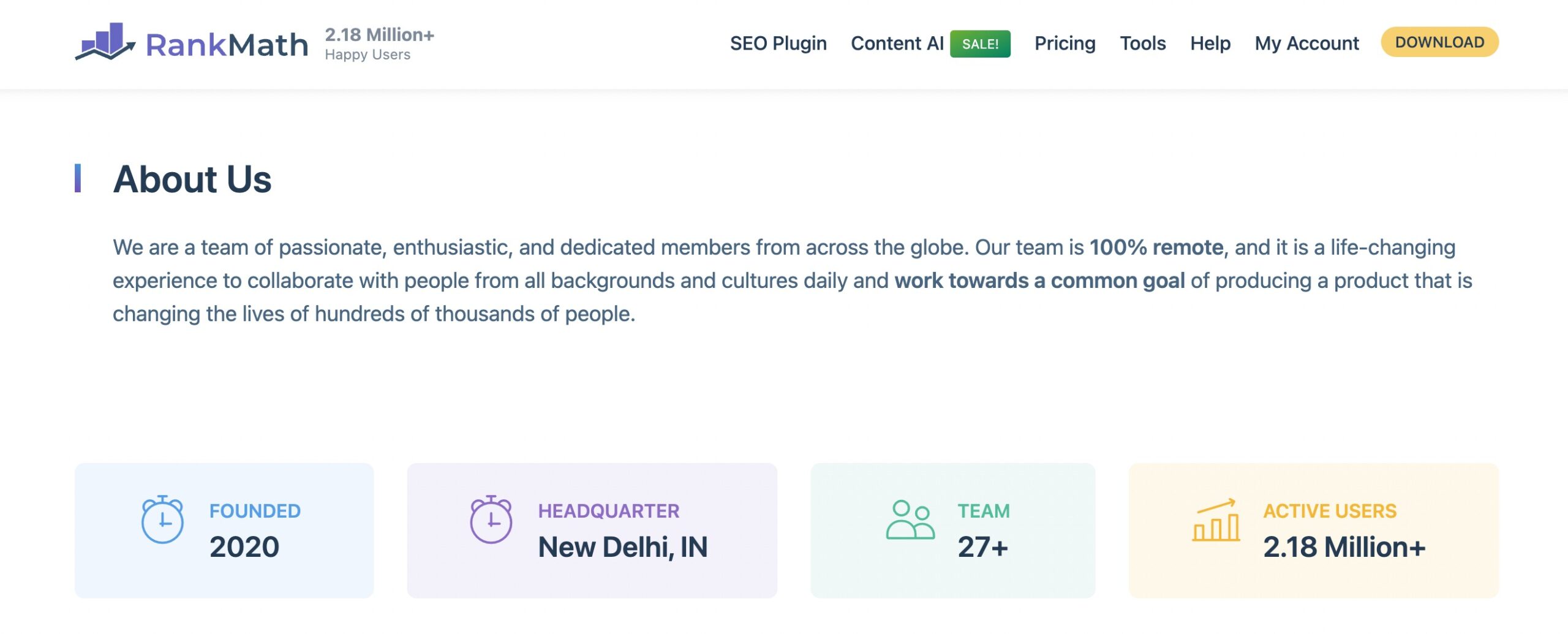
If you collect any kind of user data—like emails, names, or even cookies—you need to be upfront about it. Let your visitors know:
- What information do you collect
- Why are you collecting it
- How it’s stored and protected
- Who (if anyone) do you share it with
This kind of clarity helps users feel safe on your site.
Make sure your privacy policy is easy to find, ideally, link to it in your website footer. Keep it simple and understandable. You don’t need to be a lawyer—just explain things in plain language.
If you earn affiliate income, work with sponsors, or include paid reviews, make that clear. Don’t try to hide it—transparency here strengthens your credibility.
Don’t set and forget your privacy policy. If anything changes—like how you handle user data—update your policy and notify your users if needed. Staying transparent about changes reinforces your commitment to doing things right.
Addressing Misinformation and Fake News
To build a trustworthy website, you can’t just focus on what you say—you also need to make sure it’s true. In today’s world, misinformation and fake news spread fast, and if your content contributes to that, even accidentally, it can seriously damage your credibility with both users and search engines.
Double-check your facts. Look for reliable sources, preferably official websites, peer-reviewed studies, or trusted news outlets. If I’m quoting stats or referencing claims, I always ask myself, Where did this come from, and is it still valid?
Whenever possible, provide links or references to the original source of your information. This doesn’t just help your credibility—it also shows transparency. It’s like saying, Don’t just take my word for it. Here’s where I got this.
If you come across older posts on your site that are no longer accurate, update them with the latest info or remove them entirely.
If you discover you’ve shared something incorrect—even if it was unintentional—correct it and let your audience know. A simple note like ‘Update: This section has been revised for accuracy’ goes a long way in showing your integrity.
5 Tools to Evaluate Your Website’s E-E-A-T Status
Google’s Search Quality Rater Guidelines (QRG): Start by reviewing Google’s QRG. The QRG gives you a detailed look at how Google wants its human evaluators to assess a site’s quality. I recommend reading the sections that focus on E-E-A-T and YMYL (Your Money or Your Life) pages, especially if your content touches on sensitive topics like health, finance, or legal advice.
Google Search Console: This is my go-to for understanding how my site performs in search and spotting red flags. Google Search Console offers valuable data on how your website performs in Google’s search results. Check for any warnings, penalties, or issues that can affect your E-E-A-T.
Content Audit: Conduct a thorough audit of your website’s content. Evaluate the accuracy, relevance, and depth of your content. Identify outdated or low-quality content that may be impacting your E-E-A-T.
Backlink Analysis: Use tools like Ahrefs or Moz to assess the quality and quantity of backlinks pointing to your site. High-quality backlinks from authoritative sources can boost your rankings.
6 Frequently Asked Questions
Is E-E-A-T an Algorithm?
No, E-E-A-T is not an algorithm. It represents a set of principles and guidelines that search engines, especially Google, use to evaluate the quality and credibility of the content.
Does Google Use E-E-A-T Score?
Google does not use the E-E-A-T score. Instead, it considers various factors to rank and display content in the search results.
Is E-E-A-T Applicable Only for YMYL Sites?
E-E-A-T is especially applicable to YMYL websites. YMYL websites deal with topics that significantly impact users’ lives, health, safety, finances, etc. Such sites are expected to demonstrate high-level E-E-A-T to ensure accurate, reliable, and trustworthy information.
Can E-E-A-T Be Improved Over Time?
Yes, E-E-A-T can be improved over time through consistent efforts to enhance your experience, expertise, build authoritativeness, and maintain trust. It’s an ongoing process that can lead to better rankings.
What Are Some Common E-E-A-T Mistakes to Avoid?
Common E-E-A-T mistakes include publishing inaccurate or misleading information, neglecting to update outdated content, and engaging in unethical practices like deceptive advertising.
7 Concluding the Journey to Better Rankings
Improving your website’s E-E-A-T isn’t about quick hacks—it’s about building genuine value and trust with your audience over time.
The more transparent, credible, and helpful your content is, the more likely both users and search engines will trust it.
You don’t have to be perfect, but by showing your users (and Google) that you care about quality, you’ll put yourself in the best position for long-term SEO success.
If you like this post, let us know by Tweeting @rankmathseo.
